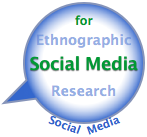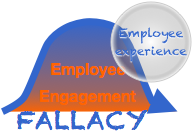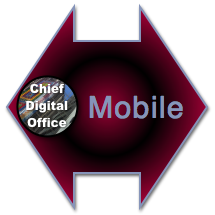
Africa [credit: Mapswire.com]
Africa is a nascent innovation powerhouse, and its leadership will become increasingly obvious during the coming decades, but the seeds are already visible as this post reveals: Africa’s population is exploding, and its young people are adopting tech alternatives to countries’ long-insufficient health, education, and financial infrastructure.
If you’ve been interested in international development for long, you have seen many prognostications about “Africa rising” over the years only to see them fade into oblivion. Predicting profound economic shifts is like predicting earthquakes; you study the driving forces and your algorithms crunch the data.
That isn’t stopping Helga Stegmann. She has led “user experience” agency Mantaray since 2006, and she gave a riveting talk last week in Chicago hosted by partner agency BoldInsight. In my experience, user experience folks rarely have their hands on the pulse of disruptive economic change, but the reason she is an exception reflects that Africa’s economic transformation is happening at the grassroots level (as with most revolutions), and her key orientation is user experience design, so researching users across rapidly evolving interfaces in devices. Follow along with my notes of her remarks […]
 The Potential of Female Leadership explores what lessons we may learn from bonobos’ matriarchal social structure, so we can build stronger, more collaborative human communities and groups. Bonobo Handshake is an enthralling insightful book, which I review here. A tremendous bonus is its similarities to and significant differences from Chimpanzee Politics (reviewed yesterday). The Potential of Female Leadership explores what lessons we may learn from bonobos’ matriarchal social structure, so we can build stronger, more collaborative human communities and groups. Bonobo Handshake is an enthralling insightful book, which I review here. A tremendous bonus is its similarities to and significant differences from Chimpanzee Politics (reviewed yesterday).
Bonobo Handshake was on the same library shelf as Chimpanzee Politics, but it is a very different book, and in delightful ways. At the same time, it offers intriguing insight into bonobos’ behavior, which differs significantly from chimpanzees’ and holds interesting lessons for human societies and groups. Although Woods is not a primatologist per se, she has conducted extensive research with her husband, who is, so explaining scientific experiments forms a key part of this book.
Bonobo Handshake is rare in a surprising way. Deftly and subtly, it contrasts the joy, harmony and matriarchal structure of the bonobos with chimpanzees’ and humans’ patriarchal societies and violence: the wars in and around the two Congos result in the […]
 Ethnographic research for cross border business shows how to apply ethnographic research of social media to reducing the risks and costs of doing cross border business and deals. Ethnographic research can transform the value proposition of international business because it’s a very efficient way to conduct due diligence, to study the behavior and motivations of the people that the deal proposes to serve. Unlike traditional research methods, which are relatively slow, costly and qualitative, ethnographic research of social media combines qualitative richness with quantitative analysis. It’s faster and less costly, too. Ethnographic research for cross border business shows how to apply ethnographic research of social media to reducing the risks and costs of doing cross border business and deals. Ethnographic research can transform the value proposition of international business because it’s a very efficient way to conduct due diligence, to study the behavior and motivations of the people that the deal proposes to serve. Unlike traditional research methods, which are relatively slow, costly and qualitative, ethnographic research of social media combines qualitative richness with quantitative analysis. It’s faster and less costly, too.
Ethnographic research for cross border business can dramatically improve the depth and breadth of research for business and corporate strategy, market entry strategy, customer development, human capital strategy, product management, and others since it allows teams to consider more users and to assess their behavior and motivations, which can improve the value of more costly research.
Imagine that you can get deep qualitative and quantitative data on what your proposed clients, customers, employees and partners are discussing among themselves, specifically about the business scenario you propose to address. Ethnographic allows you to validate, with real people, […]
 Ethnographic research for social media initiatives shows how ethnography can change the rules of social media programs in marketing, customer service, product development, recruiting and others. Ethnographic research enables teams to understand the people who are most important to your firm so they can relate to them at a completely different level. Moreover, interacting in digital public activates the network effect and the annuity effect, so it’s very scalable. Since your teams interact in digital public, where a far larger group of like people observes the interactions, they influence a large group of people and build relationships with them. People start trusting your firm, preferring your firm, and doing more business with you. See the Trust Business Chain Reaction and infographic for how it monetizes. Ethnographic research for social media initiatives shows how ethnography can change the rules of social media programs in marketing, customer service, product development, recruiting and others. Ethnographic research enables teams to understand the people who are most important to your firm so they can relate to them at a completely different level. Moreover, interacting in digital public activates the network effect and the annuity effect, so it’s very scalable. Since your teams interact in digital public, where a far larger group of like people observes the interactions, they influence a large group of people and build relationships with them. People start trusting your firm, preferring your firm, and doing more business with you. See the Trust Business Chain Reaction and infographic for how it monetizes.
Ethnographic research for social media initiatives is a game-changer for customer experience and digital transformation programs in multiple phases. It’s faster, less costly, and scalable. It provides an unprecedented combination of qualitative and quantitative research.
[…]
 The connected car and customer experience reveals a new opportunity for carmakers to dial into real customer behavior and desires around connected cars and autonomous cars. The Connected car and the autonomous car are powerful services that will help transform how people move around, and they are emerging during an era of unprecedented volatility in markets. I’ll wager that there’s never been a better or more challenging time to be a carmaker because opportunities and threats have never been higher. I’ve been fortunate to meet product managers and engineers who are pioneering connected and autonomous car services. I’ve also been meeting leaders in the Internet of Things (smart devices), of which the connected car is a part. The connected car and customer experience reveals a new opportunity for carmakers to dial into real customer behavior and desires around connected cars and autonomous cars. The Connected car and the autonomous car are powerful services that will help transform how people move around, and they are emerging during an era of unprecedented volatility in markets. I’ll wager that there’s never been a better or more challenging time to be a carmaker because opportunities and threats have never been higher. I’ve been fortunate to meet product managers and engineers who are pioneering connected and autonomous car services. I’ve also been meeting leaders in the Internet of Things (smart devices), of which the connected car is a part.
My crystal ball says that the connected car is a bet-the-brand proposition for carmakers because it directly addresses competing on customer experience, the most disruptive trend of all. As I detailed in The Social Channel, we have moved from a product/service-based economy toward an experience economy. Even IT analyst Gartner has proclaimed that customer experience is the final battleground for firms. […]
 The Employee Engagement Fallacy reveals that most literature, papers, and methods are built on faulty Industrial Economy employment attitudes, and it provides an approach that uses experiential social media to help reframe employment and performance. The Employee Engagement Fallacy reveals that most literature, papers, and methods are built on faulty Industrial Economy employment attitudes, and it provides an approach that uses experiential social media to help reframe employment and performance.
Although the idea of “employee engagement” can be a rare opportunity to increase competitiveness, its practice is compromised by well intended but flawed logic.
Here’s the fallacy: Employee “engagement” is the result of employees’ experiences while they’re working at employers. Few engagement programs focus on employees’ experiences, so they fall short.
Engagement is not achieved by a program or initiative that focuses on the outcome. Employers see much more success at achieving the result when they focus on empowering the experiences their employees want when they decide to work at the employer. Experience is the motor of engagement, so empowering experience is the first step of raising productivity and lowering employment costs, two common employee engagement goals. Here’s how it’s done.
[…]
10 Detailed Case Studies + Big Data & Analytics’ New Digital Divide + How to Think Like a Data Scientist Book Review: Numbers Rule Your World/Kaiser Fung
 [UPDATED] Step inside a data scientist’s mind, and learn why probability is the key to profit and how it’s the key to understanding and using big data for better decision making. This fascinating and useful book clearly shows how people misunderstand probability and misuse statistics—and therefore big data—and how the knowledge gap leads to faulty models, thinking and decisions. New winners and losers are emerging in the digital social and big-data age. A new digital divide, people who think like data scientists and use probability to support decision making—and everyone else. The data science group will outperform, and Fung shows how creative, fun and useful data science is. [UPDATED] Step inside a data scientist’s mind, and learn why probability is the key to profit and how it’s the key to understanding and using big data for better decision making. This fascinating and useful book clearly shows how people misunderstand probability and misuse statistics—and therefore big data—and how the knowledge gap leads to faulty models, thinking and decisions. New winners and losers are emerging in the digital social and big-data age. A new digital divide, people who think like data scientists and use probability to support decision making—and everyone else. The data science group will outperform, and Fung shows how creative, fun and useful data science is.
This book is a perfect twin to Duncan Watts’ Everything Is Obvious* Once You Know the Answer, which exposes how common sense pervades management decisions and failure. I shall refer to several specific connections between […]
 Chicago-Style Innovation is my notes from Lightbank Innovation Day, which took place on 9 May 2013 at the City Winery (presentations) and Lightbank’s offices (networking). Throughout the day, it was obvious that the Knowledge Economy’s Social Channel was unfolding; entrepreneurs’ startups are stripping off an increasing breadth of enterprise processes and using digital social software to improve them. For example, Needle’s platform creates experts in user (customer) use cases and outcomes that outperform anyone at retail; Fieldglass, HighGround, Fooda, oDesk and TalentBin take aim at various parts of human capital while Aon Hewitt showed how to practice enterprise innovation on the inside; DoubleDutch aims to [at long last] digitize trade shows and conferences through its platform’s geosocial functions. Sprout Social and Contently offered social tools. Chicago-Style Innovation is my notes from Lightbank Innovation Day, which took place on 9 May 2013 at the City Winery (presentations) and Lightbank’s offices (networking). Throughout the day, it was obvious that the Knowledge Economy’s Social Channel was unfolding; entrepreneurs’ startups are stripping off an increasing breadth of enterprise processes and using digital social software to improve them. For example, Needle’s platform creates experts in user (customer) use cases and outcomes that outperform anyone at retail; Fieldglass, HighGround, Fooda, oDesk and TalentBin take aim at various parts of human capital while Aon Hewitt showed how to practice enterprise innovation on the inside; DoubleDutch aims to [at long last] digitize trade shows and conferences through its platform’s geosocial functions. Sprout Social and Contently offered social tools.
Presenters Gian Fulgoni, J Schwan and Ramon De Leon shared valuable advice for entrepreneurs, investors and enterprise executives. Fulgoni provided statistics that showed how mobile was eclipsing ecommerce and analog commerce; Schwan opened the audience’s eyes to Ubiquitous Computing and the Internet of Things, and De Leon showed the power of (pervasively ;^) being yourself.
[…]

The Mobile Competency Center’s mobile transformation roadmap assumes “average” stakeholder (“user”) mobile adoption and enterprise competency, but its premise is that all organizations can use mobile to transform their relationships with stakeholders. This matters because most firms have weak customer relationships, which consist of mass communications, impersonal sales transactions and cost-minimized service processes. Done right, mobile offers visionary Chief Digital Officers a rare chance to increase their relevance to customers—and boost competitiveness.
This roadmap is necessarily a broad guideline because each organization’s optimal path of initiatives and milestones will depend on numerous variables. The sequence and priority of each part of mobile transformation will depend on the mobile adoption of highest priority stakeholders, how the firm wants to connect with them and the firm’s mobile resources and expertise. Knowing these variables will enable the CDO to sequence the roadmap.
Mobile Transformation Roadmap is Part3 of The CDO Guide to Mobile for Digital Transformation.
[…]
 [UPDATED] Social business strategy use cases represent scenarios in which most organizations find themselves, and they reflect some of the choices of which CDOs, CMOs and CEOs may use as they plan to evolve their enterprises in order to either improve returns or simply remain relevant in volatile markets. [UPDATED] Social business strategy use cases represent scenarios in which most organizations find themselves, and they reflect some of the choices of which CDOs, CMOs and CEOs may use as they plan to evolve their enterprises in order to either improve returns or simply remain relevant in volatile markets.
Social business strategy is inherently transformational to large organizations whether they are in commercial, nonprofit or government sectors. All organizations are hives of people communicating and collaborating to execute business processes (“work”). Digital social technologies have reduced the cost of communication (and therefore much collaboration and work) by an order of magnitude (roughly ten times). Collaboration and innovation, before digital social technologies, were slow and expensive. Now they are very fast and inexpensive—when organizations learn how to use them. Organizations that learn how are more responsive to their constituents and customers, so the market rewards them—and will increasingly punish those that lag too far.
These use cases focus on building enterprise social business internal capability, and they are also helpful to consider when selecting social business advisors. Please […]
|
|


 The Potential of Female Leadership explores what lessons we may learn from bonobos’ matriarchal social structure, so we can build stronger, more collaborative human communities and groups. Bonobo Handshake is an enthralling insightful book, which I review here. A tremendous bonus is its similarities to and significant differences from Chimpanzee Politics (reviewed yesterday).
The Potential of Female Leadership explores what lessons we may learn from bonobos’ matriarchal social structure, so we can build stronger, more collaborative human communities and groups. Bonobo Handshake is an enthralling insightful book, which I review here. A tremendous bonus is its similarities to and significant differences from Chimpanzee Politics (reviewed yesterday). Ethnographic research for cross border business shows how to apply ethnographic research of social media to reducing the risks and costs of doing cross border business and deals. Ethnographic research can transform the value proposition of international business because it’s a very efficient way to conduct due diligence, to study the behavior and motivations of the people that the deal proposes to serve. Unlike traditional research methods, which are relatively slow, costly and qualitative, ethnographic research of social media combines qualitative richness with quantitative analysis. It’s faster and less costly, too.
Ethnographic research for cross border business shows how to apply ethnographic research of social media to reducing the risks and costs of doing cross border business and deals. Ethnographic research can transform the value proposition of international business because it’s a very efficient way to conduct due diligence, to study the behavior and motivations of the people that the deal proposes to serve. Unlike traditional research methods, which are relatively slow, costly and qualitative, ethnographic research of social media combines qualitative richness with quantitative analysis. It’s faster and less costly, too. Ethnographic research for social media initiatives shows how ethnography can change the rules of social media programs in marketing, customer service, product development, recruiting and others. Ethnographic research enables teams to understand the people who are most important to your firm so they can relate to them at a completely different level. Moreover, interacting in digital public activates the network effect and the annuity effect, so it’s very scalable. Since your teams interact in digital public, where a far larger group of like people observes the interactions, they influence a large group of people and build relationships with them. People start trusting your firm, preferring your firm, and doing more business with you. See the Trust Business Chain Reaction and infographic for how it monetizes.
Ethnographic research for social media initiatives shows how ethnography can change the rules of social media programs in marketing, customer service, product development, recruiting and others. Ethnographic research enables teams to understand the people who are most important to your firm so they can relate to them at a completely different level. Moreover, interacting in digital public activates the network effect and the annuity effect, so it’s very scalable. Since your teams interact in digital public, where a far larger group of like people observes the interactions, they influence a large group of people and build relationships with them. People start trusting your firm, preferring your firm, and doing more business with you. See the Trust Business Chain Reaction and infographic for how it monetizes. The connected car and customer experience reveals a new opportunity for carmakers to dial into real customer behavior and desires around connected cars and autonomous cars. The Connected car and the autonomous car are powerful services that will help transform how people move around, and they are emerging during an era of unprecedented volatility in markets. I’ll wager that there’s never been a better or more challenging time to be a carmaker because opportunities and threats have never been higher. I’ve been fortunate to meet product managers and engineers who are pioneering connected and autonomous car services. I’ve also been meeting leaders in the Internet of Things (smart devices), of which the connected car is a part.
The connected car and customer experience reveals a new opportunity for carmakers to dial into real customer behavior and desires around connected cars and autonomous cars. The Connected car and the autonomous car are powerful services that will help transform how people move around, and they are emerging during an era of unprecedented volatility in markets. I’ll wager that there’s never been a better or more challenging time to be a carmaker because opportunities and threats have never been higher. I’ve been fortunate to meet product managers and engineers who are pioneering connected and autonomous car services. I’ve also been meeting leaders in the Internet of Things (smart devices), of which the connected car is a part. [UPDATED] Step inside a data scientist’s mind, and learn why probability is the key to profit and how it’s the key to understanding and using big data for better decision making. This fascinating and useful book clearly shows how people misunderstand probability and misuse statistics—and therefore big data—and how the knowledge gap leads to faulty models, thinking and decisions. New winners and losers are emerging in the digital social and big-data age. A new digital divide, people who think like data scientists and use probability to support decision making—and everyone else. The data science group will outperform, and Fung shows how creative, fun and useful data science is.
[UPDATED] Step inside a data scientist’s mind, and learn why probability is the key to profit and how it’s the key to understanding and using big data for better decision making. This fascinating and useful book clearly shows how people misunderstand probability and misuse statistics—and therefore big data—and how the knowledge gap leads to faulty models, thinking and decisions. New winners and losers are emerging in the digital social and big-data age. A new digital divide, people who think like data scientists and use probability to support decision making—and everyone else. The data science group will outperform, and Fung shows how creative, fun and useful data science is. Chicago-Style Innovation is my notes from Lightbank Innovation Day, which took place on 9 May 2013 at the City Winery (presentations) and Lightbank’s offices (networking). Throughout the day, it was obvious that the Knowledge Economy’s Social Channel was unfolding; entrepreneurs’ startups are stripping off an increasing breadth of enterprise processes and using digital social software to improve them. For example, Needle’s platform creates experts in user (customer) use cases and outcomes that outperform anyone at retail; Fieldglass, HighGround, Fooda, oDesk and TalentBin take aim at various parts of human capital while Aon Hewitt showed how to practice enterprise innovation on the inside; DoubleDutch aims to [at long last] digitize trade shows and conferences through its platform’s geosocial functions. Sprout Social and Contently offered social tools.
Chicago-Style Innovation is my notes from Lightbank Innovation Day, which took place on 9 May 2013 at the City Winery (presentations) and Lightbank’s offices (networking). Throughout the day, it was obvious that the Knowledge Economy’s Social Channel was unfolding; entrepreneurs’ startups are stripping off an increasing breadth of enterprise processes and using digital social software to improve them. For example, Needle’s platform creates experts in user (customer) use cases and outcomes that outperform anyone at retail; Fieldglass, HighGround, Fooda, oDesk and TalentBin take aim at various parts of human capital while Aon Hewitt showed how to practice enterprise innovation on the inside; DoubleDutch aims to [at long last] digitize trade shows and conferences through its platform’s geosocial functions. Sprout Social and Contently offered social tools.
 [UPDATED] Social business strategy use cases represent scenarios in which most organizations find themselves, and they reflect some of the choices of which CDOs, CMOs and CEOs may use as they plan to evolve their enterprises in order to either improve returns or simply remain relevant in volatile markets.
[UPDATED] Social business strategy use cases represent scenarios in which most organizations find themselves, and they reflect some of the choices of which CDOs, CMOs and CEOs may use as they plan to evolve their enterprises in order to either improve returns or simply remain relevant in volatile markets.